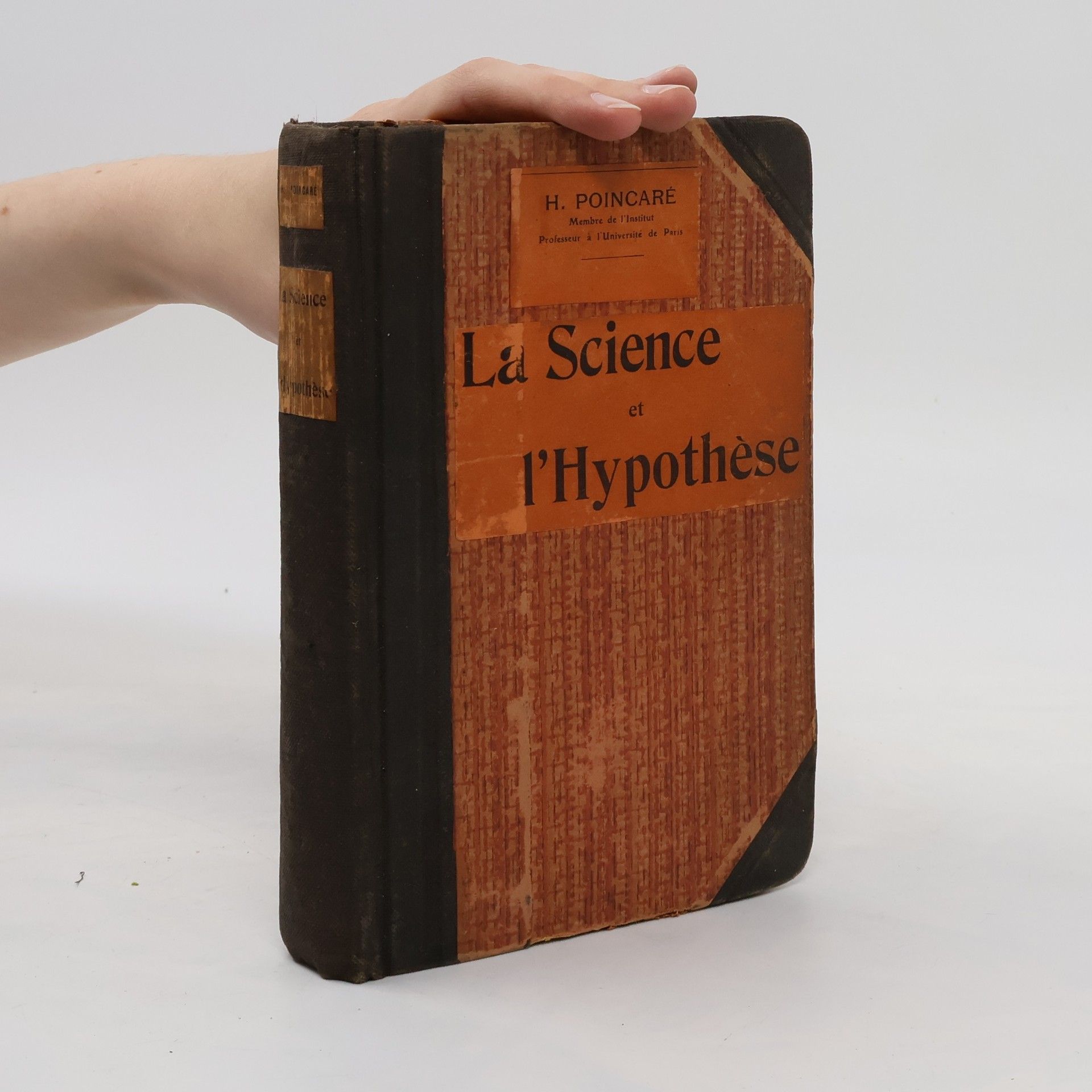Mathematische Vorlesungen an der Universita ̈t Go ̈ttingen: IV SECHS VORTRA ̈GE U ̈BER AUSGEWA ̈HLTE GEGENSTA ̈NDE AUS DER REINEN MATHEMATIK UND DER MATHEMATISCHEN PHYSIK auf Einladung der Wolfskehl-Kommission der Ko ̈niglichen Gesellschaft der Wissenschaften gehalten zu Go ̈ttingen vom 22.–28. April 1909 von HENRI POINCARE ́ Mitglied der Franzo ̈sischen Akademie Professor an der Facult ́e des Sciences der Universita ̈t Paris Mit 6 in den Text gedruckten Figuren
Henri Poincaré Book order (chronological)
A French thinker whose vast knowledge spanned mathematics, physics, and the philosophy of science. Poincaré was often described as a polymath, excelling across all fields of mathematics as it existed in his time. His work is characterized by a profound understanding of complex scientific concepts and their philosophical implications. He explored the boundaries of human knowledge and the nature of scientific inquiry.






Les mathématiques sont la poésie des sciences
Suivi de L'invention mathématique
- 128 pages
- 5 hours of reading
Cédric Villani trace des parallèles entre les mondes de la poésie et des mathématiques
Das vorliegende Werk beinhaltet sechs Vorträge des bedeutenden französischen Mathematiker und Physiker Henri Poincaré (1854-1912). Der Verfasser gilt noch heute als einer der herausragendsten Mathematiker des ausgehenden 19. Jahrhunderts. Insgesamt veröffentlichte er um die 250 Werke auf unterschiedlichen Wissenschaftsgebieten. Die bereits genannten sechs Vorträge handeln von der Anwendung der Integralrechnung unter verschiedenen Bedingungen. Sorgfältig bearbeiteter Nachdruck der Originalausgabe aus dem Jahre 1910.
Číslo – prostor – čas
- 226 pages
- 8 hours of reading
Reprezentativní výbor prací tohoto geniálního matematika a fyzika k tématům z filosofie poznání z jeho čtyř slavných a vlivných filozofických knih. Obsahuje kritický překlad deseti vybraných esejů o matematickém uvažování, o logikách, o měření prostoru a času a o geometrii. Poincaré je asi posledním vědeckým univerzalistou (1905 dospěl spolu s Einsteinem k základům teorie relativity) a zároveň kritikem postupů ve vědě (je zapřísáhlým konvencionalistou). Kniha vychází v edici Proudy evropské vzdělanosti. Uspořádal, přeložil, komentoval a původní studií o filosofii vědy doplnil Jiří Fiala.